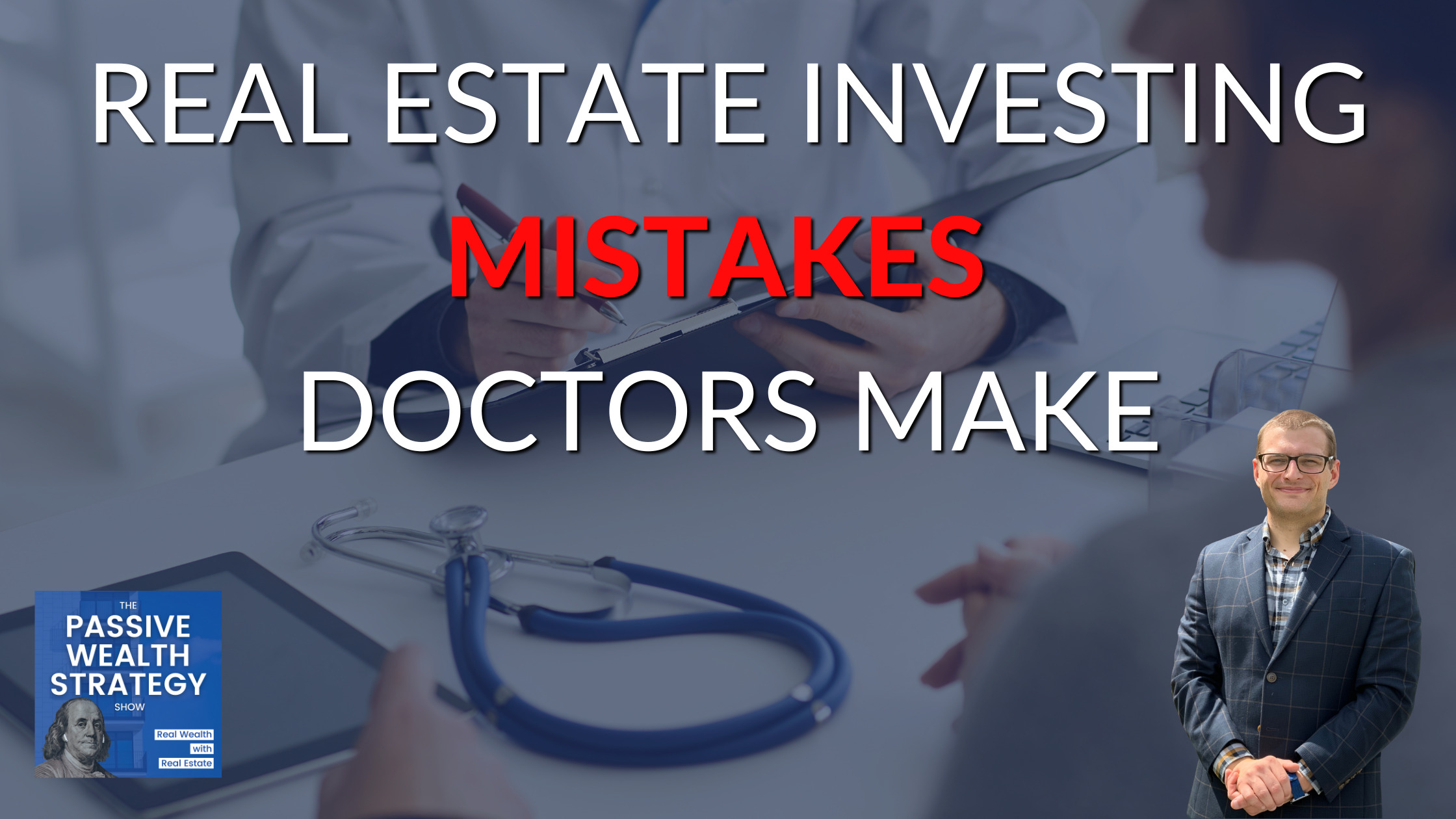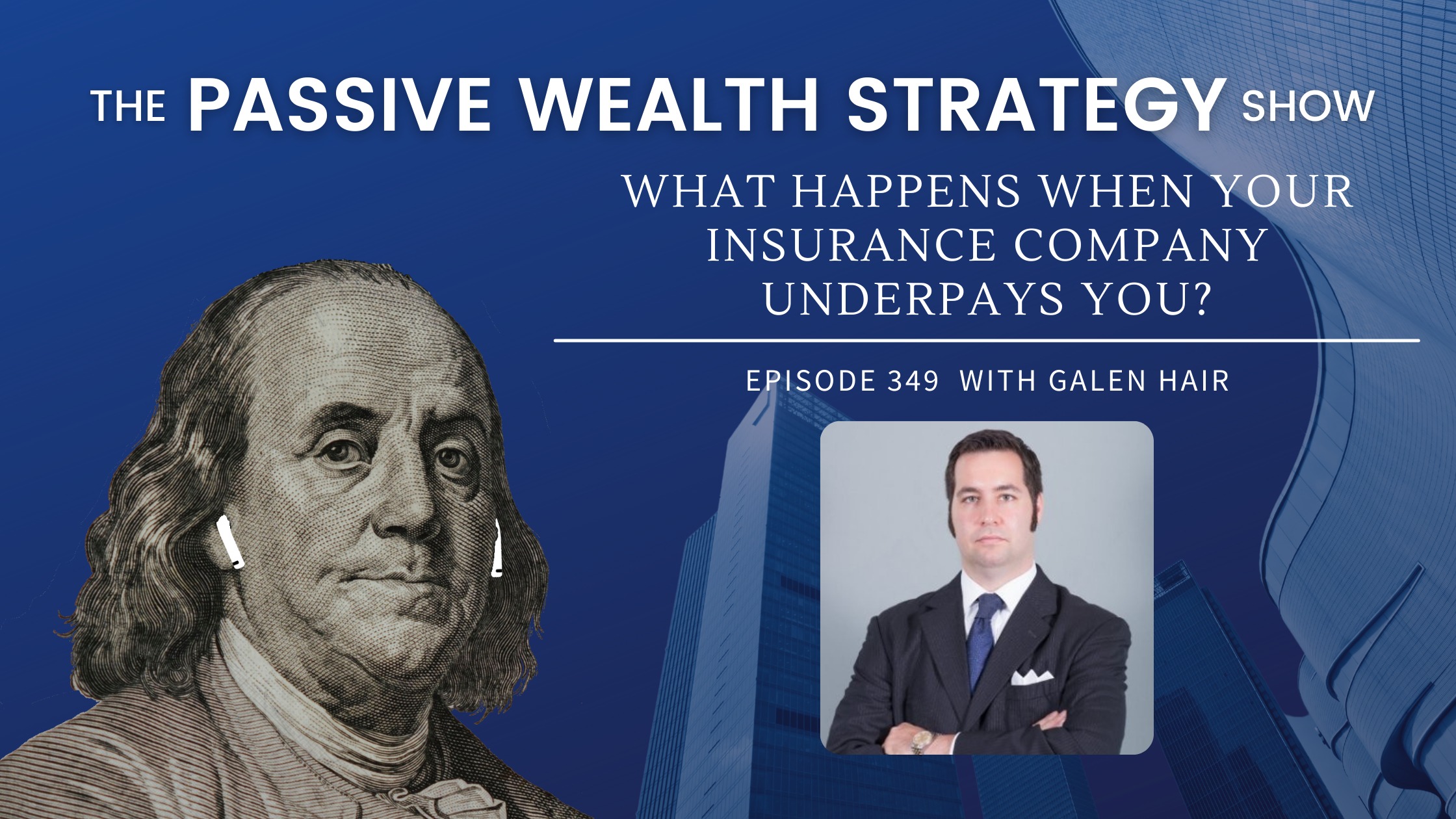
What Happens when your Insurance Company Underpays You? with Galen Hair
Galen. Thank you for joining us today.
Thanks for having me, Taylor.
So you’re in a really interesting business and an aspect of real estate investing and insurance. And we’ll dive into that today for our listeners out there who don’t know about you and your background. Give us a quick introduction to what you do and you know where you’re coming from.
Yeah. So I’m going to turn. Which probably is not the sexiest profession out there, especially when it comes to real estate investing. But what I do is I assist policyholders, whether they’re investors or actual, homeowners with their insurance losses, advocating against the insurance company to get fair compensation.
Nice. And there’s a huge topic in here and we were talking a bit before we hit record. And I made a comment about that, we’ve never had a dispute to, with an insurance company, at least to my knowledge. And I said, it’s all worked out and you had a very interesting response to that.
Hit us with that response when somebody says, Hey, we had these issues with the insurance company, but Hey, I feel like it all worked out. We were, felt satisfied in the end. What’s your response to that?
Yeah. When you mentioned that before. I think what I told you was I find it really interesting because even though every situation is different in my experience when someone tells me it worked out.
If I get an opportunity to look under the hood and see what actually happened, the answer is it did not actually work out. What happened is that policyholders took substantially less than they were entitled to, and they were happy enough with it. And it’s this interesting thing and there’s, there are reasons for it, but in the US we have been conditioned that although you were expected to pay your premiums and you were expected to adhere to your obligations under the current.
The insurance company is not in the insurance company, likely will not adhere to their obligations under the contract. And you’re just conditioned that way. So you can be the most vicious business person out there or the most like chill laid back person. And either way, you’re like, Hey, it’s insurance.
They’re not going to pay me fairly. But it wasn’t always that way. There have always been insurance disputes, obviously, some of the earliest documented recorded cases coming out of the UK had to do with insurance disputes. However, fundamentally in the late nineties, the way that insurance claim handling was being done in the United States shifted.
And now it is actually the status quo that you are delayed, you were denied or you were under.
Interesting. So I think if we think about that, we can recognize that. And as I’m reflecting on, this is unrelated to property insurance, but I was in a car accident in high school. It was not my fault.
Somebody hit me and my car rolled over. I was totally fine. And I reacted in a certain way that if I hadn’t done. It would have been very bad for the other person and somebody might’ve died, maybe need maybe his kids. I don’t know. But what ended up happening with his insurance is he accepted fault outright?
Fortunately, because I was a teenager at the time, his insurance company gave us a really decent value for my car, which was completely destroyed and we just accepted it and went along. Cause I felt fine. I didn’t feel injured and it’s 16 years ago. I’m fine. But what could have happened is that it could have been a lot more expensive for his insurance company.
And I’m seeing now that can probably easily translate into the real estate investing space, where they gave us a good value for the car. It was enough for us to go away, maybe we were underpaid. I don’t know.
Yeah, maybe so 16 years ago, we hadn’t quite finished rounding that corner of changing the way claims are being handled in the United States.
So you could have been on either side of that. There’s no way to really know. But it is fascinating because I think there’s nothing wrong with the attitude of look I’m happy, so I don’t need to fight. There’s nothing wrong with that. And I think sometimes were lawyers. In my personal opinion, tend to run afoul of like general societal acceptance and why so many people don’t actually think those lawyer jokes are jokes, is because lawyers are perceived as encouraging the systemic problem to perpetuate so they can make money. And that probably is true to some extent, but it’s not always true. And in a case where you truly aren’t being paid, what you’re entitled to. The law firms that do that type of work, serve a very valuable societal purpose.
It’s only when they’re truly is no dispute and institutes are being manufactured. So we’re in a place in this country right now, where I think all the personal injury law. Ambulance, chaser shouldn’t even be a word. But it is. And it is because there’s a perception that these lawyers are out there, like jamming up cases.
They’re not causing accidents or at least shouldn’t be, but nevertheless, there’s that general perception. However, when you get into like property damage and property claims, there really isn’t that. You might hear about storm chasing contractors, but the reason there isn’t that perception I think is, cause people to know deep down that the insurance company is not treating them fairly.
Even if ultimately they choose not to do.
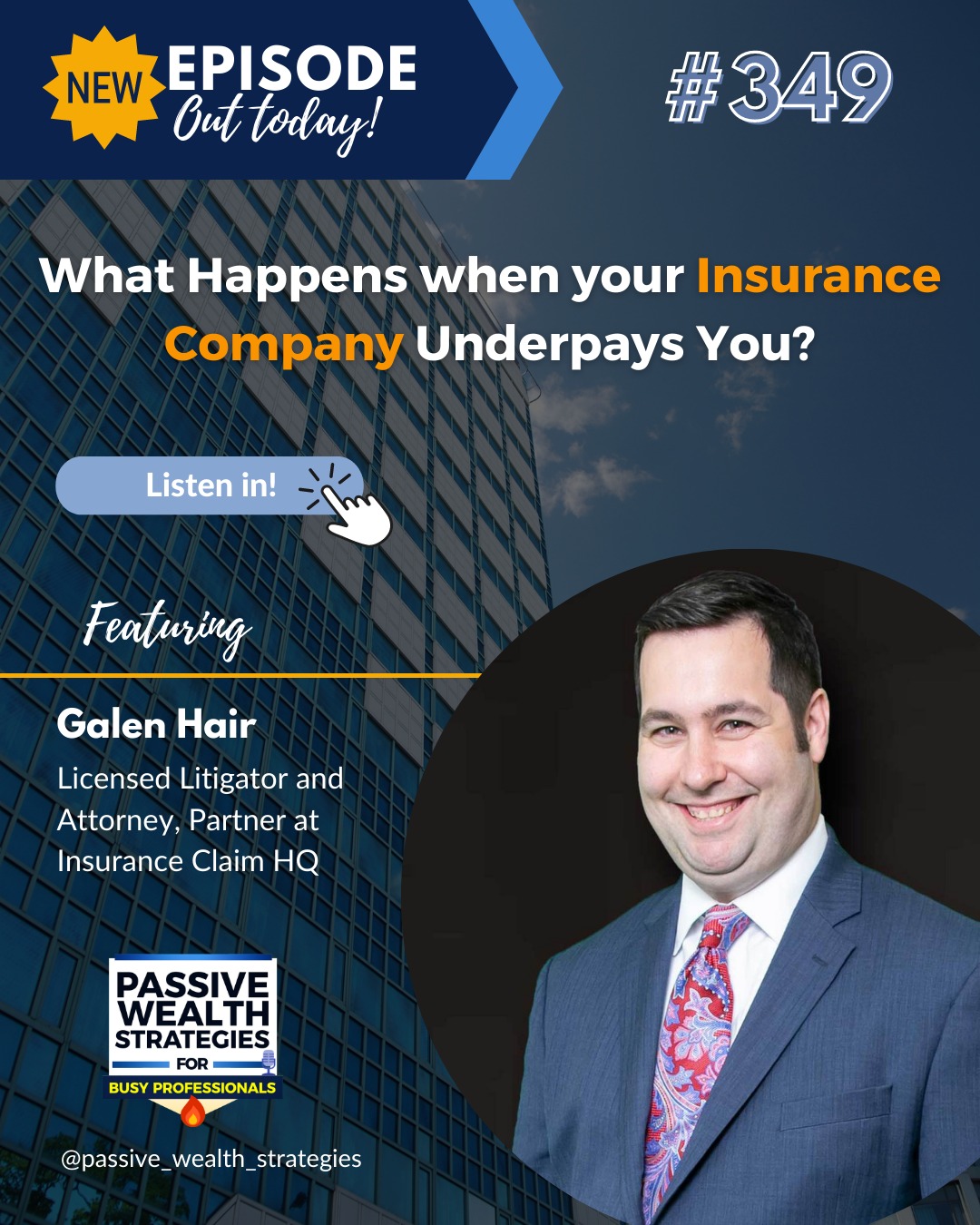
What Happens when your Insurance Company Underpays You? with Galen Hair
Wow. So I really like to dive into some of the top reasons or ways in which they, people get, underpaid or denied on the insurance company, insurance property, damage, insurance claims, excuse me, I’ll get that straight eventually.
Because there, there are probably a few through lines here where folks think, I’m never going to do well on this anyway. So if I get anything, then I’ll be happy. Whereas per their policy. They might not even understand because there’s a lot of legal ease in there. They might be entitled to more than that.
So what are some through lines that
Yeah, so obviously I start by making a bunch of generalizations, right? Because I haven’t seen that specific policy or that specific loss, however, in a perfect world, the way this insurance should work is whatever happened to your property. After you pay your deductible, you should not be out of penny to restore the property to the condition it was in prior to that thing that happened.
Okay. Now it even gets more fun and complicated. If you have an older property with maybe building materials that are no longer allowed or types of construction that are no longer allowed, because again, in a perfect world, you actually would be able to upgrade. And I don’t mean upgrades. Cheap, countertops, and now we want granite and marble, but you should be able to upgrade that property.
So it complies with the current codes and the current building standards, right? The concept is you never would have had to take off that as Bestos roof. If something hadn’t happened to that as. So it’s not really about giving you a benefit. It’s about, we can’t functionally restore you to the same position because we can’t go put illegal and harmful as Festus up.
So with that, as like our backdrop, the way that people are unpaid or underpaid comes and just a handful of areas, the first one is denying the, what we call the. Of damage and carriers do that. Often you’re looking at a property and it’s messed up and suddenly the game comes while we think this was caused by that storm.
And this wasn’t so we’ll pay for this, but not this. So that’s the first area of scope. The secondary is value. They, insurance companies use computers for pretty much everything as we all do. But the reason that’s an odd statement is one of the things they do is they employ, most of them use the exact same computer software to tell them what it’s going to cost to fix something.
Most of these people do not have construction experience. They are not contracting. They are not going to be performing any work, but they plug into a computer and it says, oh, in New York city sheetrock costs this much. And they claim that’s all been independently verified, but they have no information on how it’s been independently verified, ever, literally hundreds of depositions, maybe thousands, not a single adjuster has ever known.
An example of verifying pricing ever. It’s the craziest thing. So that’s the valuation issue, right? And then finally, the way they tie that together is with sometimes this misconstruction of policy. And it’s not necessarily a misconstruction where they say we don’t cover this, or we don’t cover that.
Or that’s only covered in these circumstances where the problem comes in is that is usually a large carrier using their own internal policies and guidelines of which you are neither privy nor did you agree to, so you’re almost fighting blindfolded because you haven’t been told. The method and the rules with which they will be applying to your claim.
And now you’re having to deal with that. That’s not what you agreed to. And in fact, in most states doing so when that’s in contravention of the actual written insurance policy doing so can actually lead to penalties and attorney fees in many states.
Wow. So I guess how many of these if I understand.
Sounds like the insurance company, many companies, many of their policies, fly afoul of what state laws actually are. And that only comes out in litigation. But does that lead to, a change on their part? Or do they figure that, Hey, we’re still benefiting by not changing anything because we’re only getting taken to court by this handful of people?
We’re not changing it. Shape out.
Yeah. So will an insurance company ever admit on the record that they are intentionally flouting, certain states’ laws are general good claims handling practices because they make more money? Now they’ll never admit to that. However, there certainly is anecdotal data to indicate that’s the case, right?
Certain things where you see a carrier get absolutely hammered in court by a jury or a judge. And still, see that problem persist or you see that problem slightly more. So the big thing on the Gulf coast over the last year has been additional living expenses. When you have a storm. And you can’t occupy your house or a fire.
Anything else that could happen to any of your properties? And if you’re investing and you’re holding with tenants, this is equally as important for you because you don’t have additional living expense coverage, but you usually do have a loss of use coverage, and that’s going to reimburse you for rent and may even allow you to take care of those tenants, to comply with your state’s law.
Who suddenly went homeless. So this is very important. And after hurricanes, Laura and Delta, which had Southwest Louisiana, we started hearing from one of the country’s largest carriers that they were telling people well, electricity and running water considered a minute. So we don’t owe for additional living expenses, as long as there is a room that is completely enclosed, you have a livable home, look, there’s an aspect of that.
It really feels like the children are starving in China, like the adage, that all of our parents told us to get us to eat. But contractually, you still are obligated to pay for these things. So they shut that down pretty hard. After the hurricanes, because I think they realized, or some lawyer told them, you understand that you were about to get decimated and the court of public opinion and the court of law, wherever you could possibly get decimated, you will do so then you fast forward in the Gulf south one year later to hurricane Ida and you think we’re not going to see the same. We’re definitely not going to see the same thing. And that’s exactly what we saw. We saw the same thing again. So there’s almost this sense sometimes even without direct evidence of how much can we get away with because it saves us money.
So even if ultimately we get slapped with some penalties or slapped with some attorney fees for one person, It’s all a numbers game, and keep in mind, insurance companies are literally in the business of figuring out the numbers and gambling-based on probabilities. And again, I think you mentioned one of the things that this show does really great is getting people out of the wall street casino and into investing.
But here’s the thing when the casino gambles, is it really. No, they know that the probability is in their favor. So when you’re purchasing a policy, which you should absolutely do, I’m very pro insurance. I do not think you shouldn’t have insurance. Okay. But when you’re purchasing a policy, the insurance company has already looked at those numbers and said, okay Taylor lives over here.
And here’s the type of weather that happens here and here’s how much this property is worth. And here’s the probability that something will happen. And if something does happen, here’s the way we’re going to adjust these claims. So we will make money pretty much, no matter what happens to Taylor’s property.
At least when you look at our whole portfolio and spread it across all of Taylor’s neighbors, otherwise they would not be writing in your area. They just wouldn’t. So you’re all ready. Involved on unwillingly, probably you’re already involved in the kind of fixed investment. So making sure that you reduce the amount that’s paid on claims is a very effective financial way to make sure that the portfolio stays by.
From the insurance company’s perspective.
I understand the insurance company’s perspective. So it’s not that, like people come in, especially individual homeowners, not so much the investors crying like I’ve been a customer of this carrier for 35 years. And my great grandfather was on the board.
And why do they hate, they don’t hate you? They’re protecting them. And you’re the victim of that. So I think when you approach it from that mindset, it becomes less personal and it becomes more about.
Interesting. Okay. That’s a good way to think about it. Now, something that I wonder here is, especially from a commercial real estate investment standpoint, where we really look at, the NOI and the numbers to really see what we think our values are going to be in the future.
I think I see a lot of people underestimating, two things, and one of those is property taxes in the future, which we’re not discussing here. And then the other is. Insurance on their property because maybe they’re buying a property that’s underinsured and they need to bring it up or maybe they want to, think they can juice the return by getting an insured.
And I wanted to, probe this conversation to ask, how does. Investors deliberately choosing to under insure their property factor into this. Now, obviously, you’re probably not going to get involved in the case where you think, this is under-insured, you don’t have a chance, but I just wanted to bring up that, that topic of being adequately insured in the first place because of the insurance guys are not, it’s just insurance companies are not always the bad guys.
Sometimes you don’t have the right policy straight.
That’s true. And the, so there’s a few, there are a few issues done pack there. And the coolest part about that is I think you just did something that across thousands of clients, they have never acknowledged to me, even though sometimes I know which is intentional under-insurance right.
And the whole reason is its dollars and cents. Whether you’re an investor or an individual person you are choosing to under-insure your property, sometimes because it will, if the perception is that it will save. Of course, again, you took a gamble without the same data that the insurance company had.
You’re assuming that nothing will happen, but they’ve known if it’s your time or not. But there are bigger problems within that. So the first thing is if you’re intentionally underinsuring yourself, there’s nothing that can really be done. There are states that will hold agents and brokers accountable for selling less insurance than they should, but there’s usually some standard.
Like you had to tell them what you wanted and they didn’t get it, or they failed to inform you of something. If you’re intentionally underinsuring your property, the agent or broker did exactly what you hired them to do. They did nothing less and nothing more. And you can’t really sue them for not doing more than you wanted them to.
So that’s the first step and, Cases of accidental under insurance. That’s the place we would look right. But where people really get tripped up on this because they don’t ask the questions is you have to think about how we buy insurance, which is so unique from anything else. You just mentioned all the due diligence that you would do.
You didn’t mention all of it, but you mentioned some of the due diligence that you would do on commercial real estate. The key being you would do due diligence. What does that look like in purchasing insurance? You say, Hey, I got property. Here are the specs on it? It’s about this big it’s worth this much.
Get me insurance. And then your agent prints out a form that usually has three different companies listed on it. A couple of specs. Hey, here’s how much coverage you get here so much to cost circle one. I’ll get it bound, pay me. And then what happens three weeks later that policy shows up. Yeah, no freaking idea what it said.
Honestly, other than the information that ended up being on the first page, you didn’t know what their definition of damage was. You didn’t know often if certain perils were excluded, you didn’t know if there were caps on certain types of damage. That’s usually not disclosed on that initial sheet that the agent or broker will go through with you when they’re bidding it out.
So a. You gotta be a better business person. If you’re investing in your purchasing insurance asked to see the policy to see what’s covered. That’s the first step and why am I bringing that up? Because even in an intentional underinsured, Situation, you may be more screwed than you realize, because you may have co-insurance penalties, right?
Let’s use a million-dollar property. We think it’s worth a million dollars. We intentionally under-insure it for $500,000. Okay. And now it burns to the ground. We’re only getting $500,000 and in the typical insurance situation, you can come to me until you’re blue in the face, but I will not be able to get you an additional $500,000.
But what happens if there’s a co-insurance penalty that says, if you fail to insure the property for its value, you will essentially eat that under insurance with us. So now you’re underinsured by 50. Which means your $500,000 payment just became 250,000. Oh man, they will withhold because they don’t want you being able to max out a policy in an under insurance situation.
The concept is if you’re maxing out the policy, it should be a total loss. So if you’ve got something significantly less than a total loss, you shouldn’t be maxing out that policy simply by purchasing less insurance than you need. So they will reduce that for you out of the goodness of their hearts. So you need to make sure that, Whether you’re purchasing a policy and this happens a lot with commercial properties with co-insurance penalty.
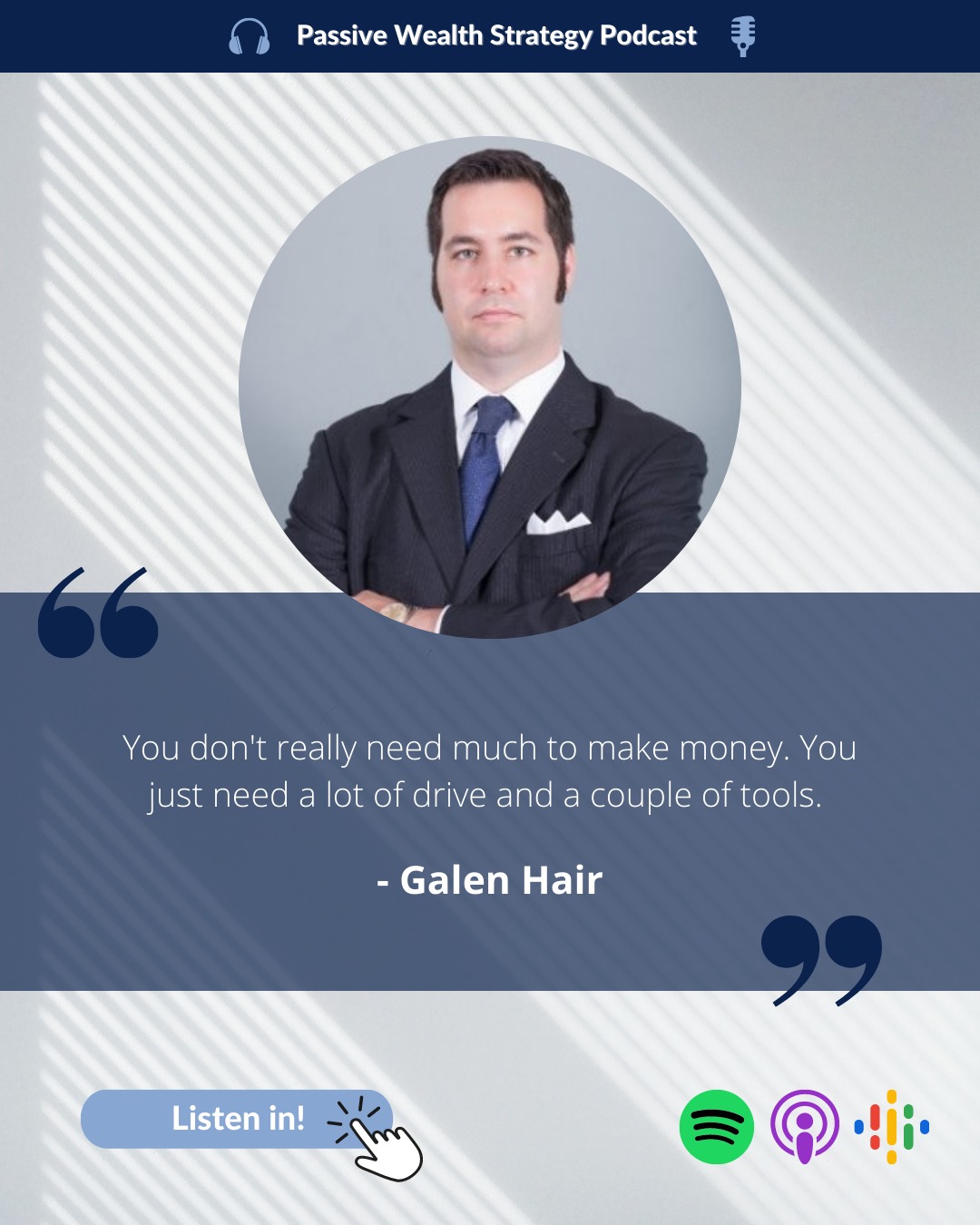
You don't really need much to make money. You just need a lot of drive and a couple of tools.
- Galen Hair Tweet
Interesting now something I want to make sure to touch on that you mentioned earlier in the conversation was the replacement of your property and the, I’ve owned Frank older, multifamily and. Live in an older property, it’s a nice place, but you couldn’t build it this way anymore.
And in a time where we’ve seen huge increases in material prices and huge increases in labor costs and all of those things and the insurance companies have these have, one model that they use for these things, they all use that. How has that adjusted to, this inflationary environment?
I don’t think it’s going away anytime soon, but the fact is the crisis has gone up, have, has the compensation, adjusted for that? Or is that another topic?
It’s a massive topic of contention because again, they’re using the software to tell you and tell themselves for that matter how much it’s going to cost to change this building, or to rebuild this building. But it doesn’t take into account. Sometimes the appropriate manner of construction, what the current costs are. They update these pricing matrices monthly. Okay. And if you go compare those prices too, on the store, like a week later, it’s out of date and you question whether it’s been out of date for months, right?
I think there’s probably a lag on a lot of those updates. There’s no real evidence one way or the other, and they’ll tell you that they do monthly surveys. So they claim that they’re caught up on pricing, but labor and material go through the roof. And especially after an event, they get even higher.
So this is a massive area of contention that I have to deal with. On a daily basis. And I think we’ve gotten really good at showing insurance companies, what it’s actually going to take to fix a property and kind of walking them into, in what we call bad faith states, walking them into the trap of letting them underpay our clients.
So they will owe those penalties and attorney fees, which. My work to essentially be free. That’s what I’m trying to do is get, is not have you come out of pocket for my work, and eventually get them what they need in order to fix this. But look, sometimes it’s simple. It’s like specialty materials, like clay, tile, roofs, and stuff, but even just an older house.
They don’t make them that way anymore. And you’re entitled to have it made the way it was made unless there’s a code problem or something like that. I’m right now, I’m on all these roofs and all these addicts because of these hurricanes. And I’m seeing some of this like gorgeous, like tongue and groove decking that you just can’t find anymore.
The insurance company wants to pay to just like pop, throw some plywood up there instead. And I’m like, no, If they choose to go with the plywood, that’s up to them, but they’re entitled to be paid for this beautiful handcrafted tongue and groove decking that you just can’t find anymore. And you can’t get craftsmanship.
Yeah. Wow. We have a slate roof on my health and I love it, but nobody’s building houses with slate roofs anymore. You’re not really seeing that. And I would want to, if something happened, I would want to get slate again. I wouldn’t want to go to, a standard asphalt shingle because it’s not the same.
The slate just looks different than it looks. It looks better in my opinion. Now. I want to, I don’t want to get too far away from that term. You said a bad faith state that I, so I can’t get too far away from that without asking what that means.
So that’s a state where if insurance companies behave in certain ways, You could be entitled to penalties on top of what you’re owed contractually under your insurance contract, as well as entitlement to attorney fees.
Okay. Different states, different rules. Those penalties can be really big or not. So big. The attorney fees can be really big or not so big. It depends. There are a million different ways to skin that cat. If I was using Louisiana as an example, it’s a 50% penalty of underpayment.
So if they underpay you by a million dollars, you get an additional. A hundred thousand dollars on top of that got to get up to that amount. Plus your attorney fees paid Florida, not so big on the penalties, but really big on the attorney fees. It’s really nice in that way because attorneys will actually take cases where you were underpaid by almost nothing.
So if you’re one of those people where cause it’s a game, right? So the lawyer needs to make money on the case and insurance companies know that. So in some states, they will intentionally short you just enough that they think attorneys won’t want to get involved in your case. Again, probably no proof that they’re intentionally doing it, but totally sure. Seems like it. So in a state like that, where you can get attorney fees, The attorney can take a case where only 10, 15, $20,000 is an issue. And if the insurance company doesn’t pay it quickly, they could end up getting slapped with a two, three, $400,000 attorney fee bill after five, 10 years of litigation.
And you still get your 20 grand that in states where there is no bad faith, probably no lawyer would have even touched your case. So those statutes are really good. Every time tort reform comes around in the context of act. One of the things the carriers do is take a shot at the bad faith statutes in those states.
So if you see that is up and that your legislatures are considering repealing or somehow watering down your state’s bad faith statutes, be aware that is the only thing that is keeping people in business that can help you when you have a claim, because if that goes away, The carrier has no disincentive to underpay you.
In fact, quite the opposite. It becomes a war of attrition. They have a team of lawyers on staff. So then the fee structure shifts the attorneys in your state. Now want to charge you out of pocket hourly to help you because there’s no legislation to help you out. And now it’s a war of attrition that you will lose, right?
So if you ever see those going away or about to go away, call your legislator and say, Hey, don’t do.
This protects me. Yeah. That’s interesting. It definitely gives you more of an opportunity, more of standing and it incentivizes the insurance companies to be able to go with a building analogy to hit the nail on the head, to get the right amount.
yeah, that’s the concept. I still think. They’ve done the math and realized that so few people get help comparatively that they don’t need to hit the nail on the head and get it exactly. But at least when they don’t, there’s some remedy for you that allows you not to be in the whole
Yeah.
Interesting, good point. I’ll have to keep an eye out for that. It’s a, that’s a lot of great lessons in here right now. We’re going to take a quick break for our sponsor. All right. Gaylen, I’ve got three questions. I ask every guest on the show. Are you ready? Let’s do it. Awesome. The first one, what is the best investment you ever made other than in your education?
I bought a barbecue grill when I was 14 years old and probably was able to use that grill. I had good teachers. I was able to use that grill to pretty much pay for every single thing I needed through high school. And even a little bit.
Like back cooking for people?
Yeah. Just by cooking for people.
I was pretty good. I’m originally from Texas. We know our way around the grill and I think it taught me a lot of valuable lessons early on that you don’t really need much to make money. You just need a lot of drive and a couple of tools. And I guess that’s what taught me to invest back in yourself when you get money.
No, I liked that. I liked that we had that best investment. Now we go to the other side of that coin, the worst investment. What is the worst investment you have ever had?
Mass torts. So lawyers have these investment vehicles called mass torts. And what they tell you is it’s a passive investment, right? You purchase the cases, you send the cases off to someone, someone works on.
And then in five years, I guess there’s a magical check, and everyone’s rich. And they swim around at a pool like Scrooge McDuck. And that’s not the way it happens. I’m like kinda wincing as I’m saying this, but I wanted to be honest because the show is called passive wealth and it’s about investing in real estate.
But, my takeaway was, if it sounds too good to be true, it is absolutely too good to be true.
Yeah. A hundred percent. I’ll totally go with that. And I think any experienced investor, no matter what you’re investing in. Probably look back and may say, be able to name at least one, maybe a couple of usually if you investments, they made that, didn’t pan out, but it sounds like that one didn’t work out for you.
No, not at all. That’s all right. We live, we learn. Yeah.
That’s right. That’s right. It’s still here. Still kicking. My favorite question here at the end of the show is what is the most important lesson you’ve learned in business and investing?
Yeah. So I guess they’re differences between business and investing.
So investing. The biggest lesson I’ve ever learned is it’s all about due diligence. But in business, I guess I tend to differ a little bit. I believe in business, you shouldn’t focus on your competitors. You should focus on the entire field. And what I mean by that is people ask me who I’m competing with, who are law firms competing with?
I’m not competing with the three or four other firms in the country that do work at our scale. I’m competing with Google apple and Amazon. And I think in a global economy, from a business standpoint, you should be looking at the entire field and you should be moderating your behavior to beat everyone else in the field because we don’t have the attention spans we used to have, and we’re no longer looking at competitors on a micro.
Nice. I liked that. I liked that the broad thinking, and also, I feel like worrying about a competitor, just shuts you down. Whereas looking at the whole field, it’s giving you a broader picture and maybe a little bit more inspiration rather than I may is the wrong word, but like vindictiveness or, just trying to fight with one guy.
So I like that. Galen, thank you for joining us today. Thank you for all the great lessons. Really interesting. This is an interesting topic for me as a new me. You’ve opened my eyes here. I’ve learned a few things and I’m sure our listeners have as well. If folks want to reach out, if they want to get in touch with you or, anything like that, where can they track?
Yeah. So we have a website insurance claim, hq.com, and then we are on all of the social media. So hit us there and we’ll get back to you or even on TikTok. But if we’re being honest, I am not personally going to respond to anything on Tik talking. Cause I can’t figure out how it works.
I don’t even have a Tik TOK.
I don’t blame you there, but that one definitely has gotten big. And once again, thank you for joining us today. So everybody out there thank you for tuning in. If you’re enjoying the show, please leave us a rating and review on Apple Podcast. I appreciate that so much. You guys, that helps other people learn about the show because that helped us rank higher in the apple podcast ecosystem.
And I’m always honest with you guys. I say this every show that gives me a nice little warm and fuzzy feeling because I get to see that you’re engaging with the content and you’re escaping the wall street casino. With us. If you know anyone who could use a little bit more passive wealth in their lives, please share the show with them and bring them into the tribe.
Don’t forget to subscribe no matter what podcast app you use and we’ll catch you here every Monday, Tuesday, and Thursday, we have a great rest of your day and we’ll talk to you on the next one. Bye-bye.

Properties Insurance
About our Guest
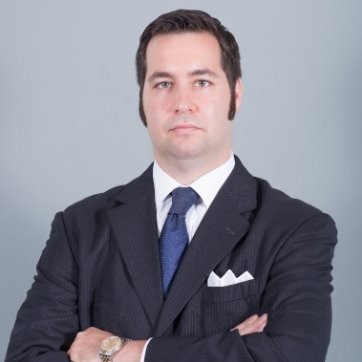
Galen Hair
Galen M. Hair, an aggressive and relentless litigator, is licensed in multiple states and boasts clients from around the world. With large wins both at home and across the country and an impressive record of favorable results, Mr. Hair gained a reputation for getting the job done both inside and outside the court room early on in his career.
He focuses not only on the litigation in front of the client, but the long term personal and business effects that his clients’ issues will cause. Viability is key and no small victory is worth it if the client is put in a more detrimental position. With both large firm and boutique firm experience, he combines a large firm comprehensive approach to a small firm low-cost model to achieve impressive results with minimal financial expense. His clients are family to him and it shows.
Episode Show Notes
Galen M. Hair, an aggressive and relentless litigator, is licensed in multiple states and boasts clients from around the world. With large wins both at home and across the country and an impressive record of favorable results, Mr. Hair gained a reputation for getting the job done both inside and outside the courtroom early on in his career.
He focuses not only on the litigation in front of the client but the long-term personal and business effects that his clients’ issues will cause. Viability is key and no small victory is worth it if the client is put in a more detrimental position. With both large firm and boutique firm experience, he combines a large firm comprehensive approach to a small firm low-cost model to achieve impressive results with minimal financial expense. His clients are family to him and it shows.
[00:01 – 04:31] Opening Segment
- Get to know Galen Hair
- Assisting policyholders with their insurance losses advocating against the insurance company to get fair compensation
[04:32 – 12:45] What Happens When Your Insurance Company Underpays You?
- Did it really work out?
- An opportunity to look in-depth with the insurance deals
- Why we’re just conditioned to think that it worked out
- Insurance disputes: Delayed, denied, and underpaid
- Galen debunks lawyer generalizations and misconceptions
- How Insurance Should Work in a Perfect World
[12:46 – 28:25] How to Get the Most Out of Your Insurance
- Will an insurance company ever admit that they are intentionally flouting to make more money?
- What happens when you underinsure your property?
- Sometimes, insurance isn’t always the bad guys
- Replacement of Your Property
- What is Bad Faith State
[28:26 – 36:18] Closing Segment
- Quick break for our sponsors
- Groundfloor offers short-term, high-yield real estate debt investments to the general public. Check www.passivewealthstrategy.com/groundfloor/ to get started.
- What is the best investment you’ve ever made other than your education?
- Barbecue grill
- Galen’s worst investment
- Mass torts
- What is the most important lesson that you’ve learned in business and investing?
- “It’s all about due diligence.”
- “You shouldn’t focus on your competitors, you should focus on the entire field.”
- Connect with my guest. See the links below.
Tweetable Quotes:
“Making sure that you reduce the amount that’s paid on claims is a very effective financial way to make sure that your portfolio stays viable from the insurance company’s perspective.” – Galen Hair
“You don’t really need much to make money. You just need a lot of drive and a couple of tools.” – Galen Hair
————
Connect with Galen Hair through Facebook, Instagram, Twitter, and LinkedIn. Visit their website https://insuranceclaimhq.com/.
Invest passively in multiple commercial real estate assets such as apartments, self storage, medical facilities, hotels and more through https://www.passivewealthstrategy.com/crowdstreet/
Participate directly in real estate investment loans on a fractional basis. Go to www.passivewealthstrategy.com/groundfloor/ and get ready to invest on your own terms.
Join our Passive Investor Club for access to passive commercial real estate investment opportunities.
LEAVE A REVIEW + help someone who wants to explode their business growth by sharing this episode or click here to listen to our previous episodes







